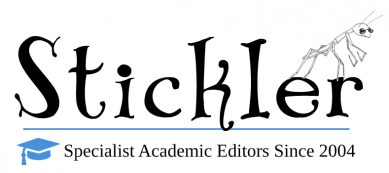Whether you’re studying for an exam or trying to get a paper written, finding the focus you need can be difficult. Creating a personalized study plan is one of the most effective ways to stay focused and finish the task at hand. Below are four simple study techniques to try this semester. They are designed to help you create a study strategy that works for you.
1. Eliminate Distractions
In our interconnected world, one of the best ways to ensure you get zero studying done is to surround yourself with distractions. Distractions can be anything from open tabs on your internet browser, to a vibrating phone, or a messy room. Even when you think you’re not being distracted, there is almost always the potential for distraction lurking around the corner. In order to truly get work done you don’t just need to avoid distractions, you need to eliminate them completely.
Use focus apps—There are too many focus apps out there to list, but finding an app that works with your browser and operating system can help stop you from going to websites that aren’t conducive to studying. SelfControl (for Mac) and Cold Turkey (for PC) are some great focus apps that are easy to use and can help you eliminate the distractions of the internet altogether.
Disconnect from the internet when writing—Even with focus apps blocking certain websites, you still have access to the possibilities of the internet. While search engines can be useful for looking things up when doing research, they can easily turn into an endless rabbit hole of irrelevant internet searches. Try unplugging your router while you write the first draft of your paper—in other words, worry about researching facts and citing sources later, just try and focus on the writing.
Put your phone in another room—Physically removing your phone from arm’s reach can do wonders for your studying productivity. This technique eliminates the possibility of mindlessly picking up your phone every time it lights up. You might be surprised at the amount of time you save by not looking at your phone every few minutes.
2. Create a Designated Space for Studying
If you’re currently studying on your couch or bed, the physical space around you could be hindering your ability to study efficiently. Much like you have dedicated spaces for certain activities in your life—a bed for sleeping, a table for eating, a couch for entertaining—it’s just as important that you have a dedicated space for studying. Carve out a corner of your room where you can place a simple desk and a comfortable chair. Make sure the space is well lit and add personal touches like paintings or house plants. Once you sit down in your dedicated study space your brain will associate it with that specific activity, making your study time more efficient.
3. Meditate to Clear Your Mind
Studies have shown that meditation can help you concentrate for longer periods of time. A large part of studying is staying focused on the task at hand. If you find your mind wandering away while you’re trying to work, meditating can help you concentrate and absorb the material that you’re reading. Meditation is also a great tool for clearing your mind of any anxieties, worries, or stress that may be hindering your ability to study.
4. Take Better Notes
Your study strategy is only as good as the notes you take. If your notes are currently an incomprehensible scribbled mess, it may be time to rethink the way your approach. Below are a few tips on how to take better notes that can change the way you study.
Get organized—To make your notes easier to read when you’re studying, try color coding them by topic. Using highlighters, different colored pens, or sticky notes can make the result more fun and effective.
Cornell Method—There are several different proven methods for effectively taking notes, including the Cornell Method. This involves separating your notes into two columns and asking yourself a series of questions after you’ve taken them—we thoroughly recommend checking out the above link to find out more. You can also try the Mapping Method and use Mind Maps to help organize your thoughts.
Creating a study strategy is an important tool for excelling in your courses and using your time efficiently. So experiment with eliminating distractions, carving out a space for yourself, meditating, or revamping your note-taking approach to figure out what works best for you.

